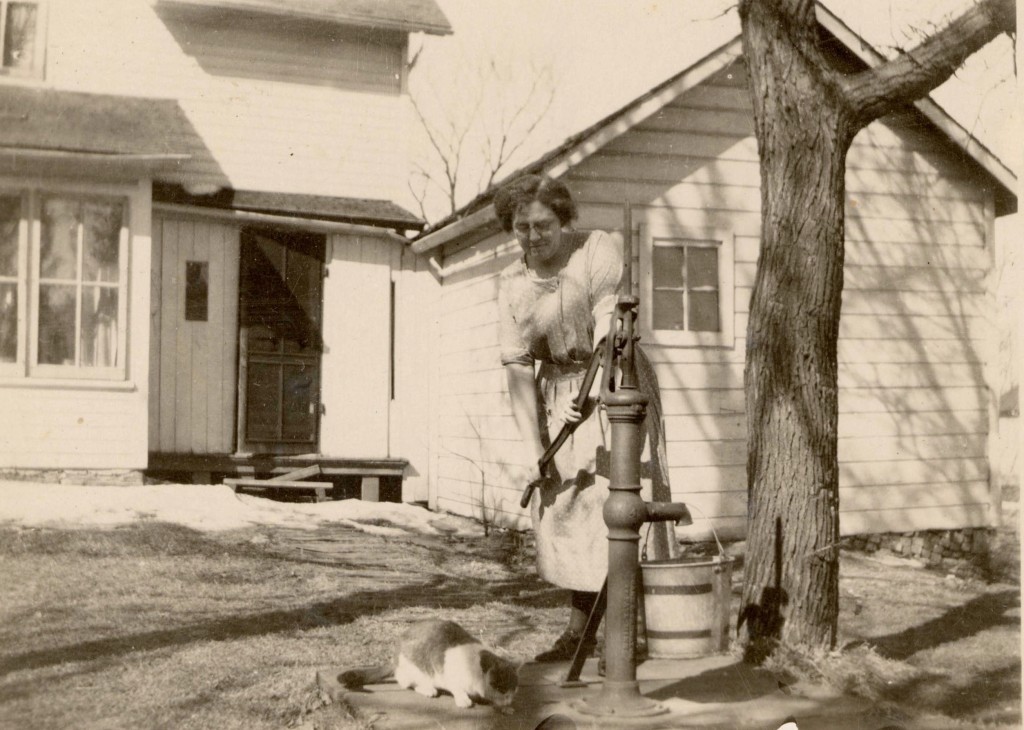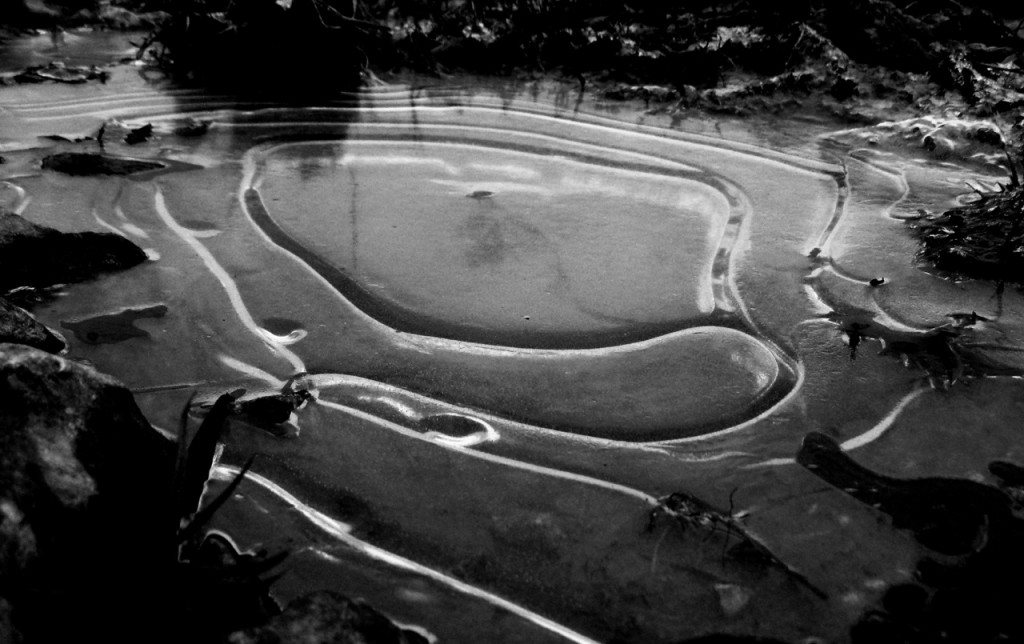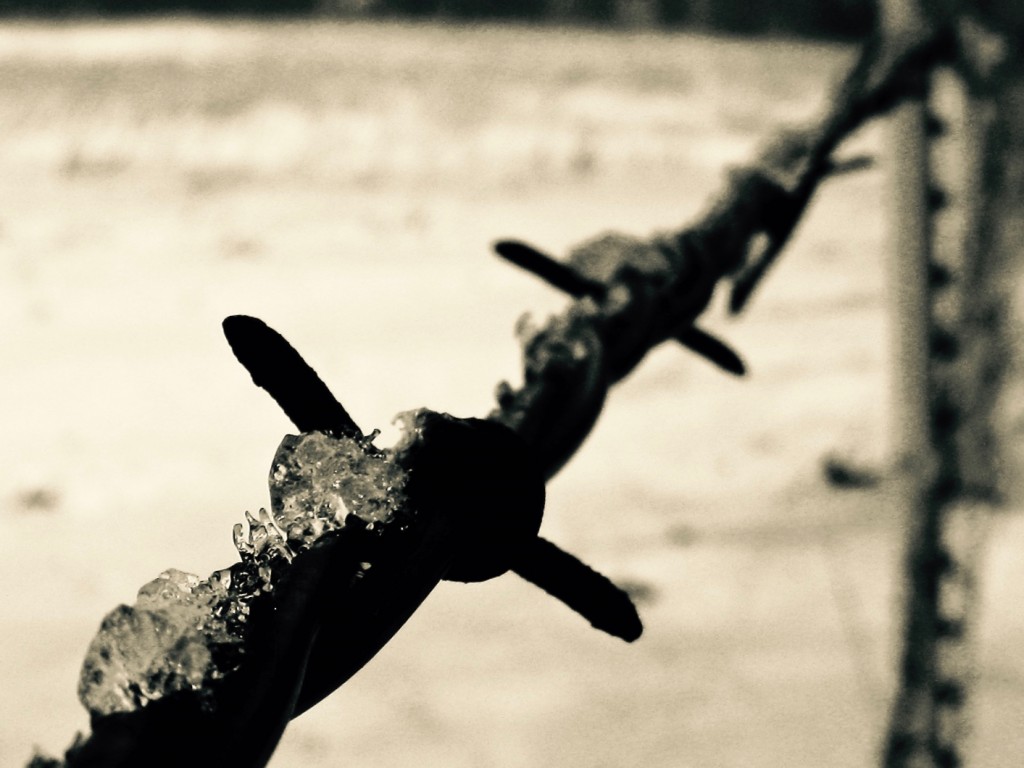
When the threshing crew arrived
she’d add in some leaves,
then cover the table
with a stiff white cloth,
dust off the plated silver
and the serving bowls,
which she’d heap full
of mashed potatoes,
boats full of gravy.
They’d spoon sugar
into tiny coffee cups
held by rough hands,
scrubbed red but stained
with grease from tinkering
with the power train belt
that broke in the field.
She cut the cake while
they ate in silence –
this gathering of men
bound by blood and common need
and by the desire for
just one more slice
of that lemon cake before I go,
if it wouldn’t be too much trouble.
– Steve Peterson
Notes
This post is a response to an April Poetry Month challenge issued by Mary Lee Hahn at her blog, Poetrepository. She found some family photos this summer at her home place and thought it would be fun to write poems about them this month.
The photo above is one of several I will use from a fantastic collection of historic photos in the New York Public Library digital collections. This is from the Farm Security Administration and was taken by Ben Shahn in 1938 in central Ohio. I discovered a lot of photos taken by Shahn, a favorite artist of mine, in the collection.
This photo struck me because I grew up with many stories about the threshing crew’s visits to my dad’s farm in north central Minnesota during the late ’30 and 40’s. If I remember right, the relatives and neighbors had various pieces of equipment that they would cobble together for the harvest season. Then they’d go around from place to place helping each other “bring in the sheaves.” At dinner time, they’d sit around the table, usually decked out all fancy and filled with food, then eat in silence: men in rough clothes straight from the field, grandmother’s labors greatly appreciated. (She cooked all that stuff in a wood burning oven. No electricity at the home place until the early 1950s!)
One year, my father gave me the dining room table from the home place as a present. It’s a distinctly un-fancy red oak oval pedestal table. There are nicks and scratches on the legs and table top. Some of the leaves are made of poorer quality wood that contains worm holes, for instance, but it extends out very far and holds a lot of history, in a Swedish wabi-sabi sort of way. The table was a wedding present for my grandparents in 1920; it was already used by the time they were given it by some long-forgotten relatives. For a time it disappeared and no one really remembered it until Dad found it languishing in the basement of a relative several years ago. He stripped the ubiquitous green paint off it and repaired and refinished it. When I sit down to eat, I often think of the threshing crew that once gathered around that table.






